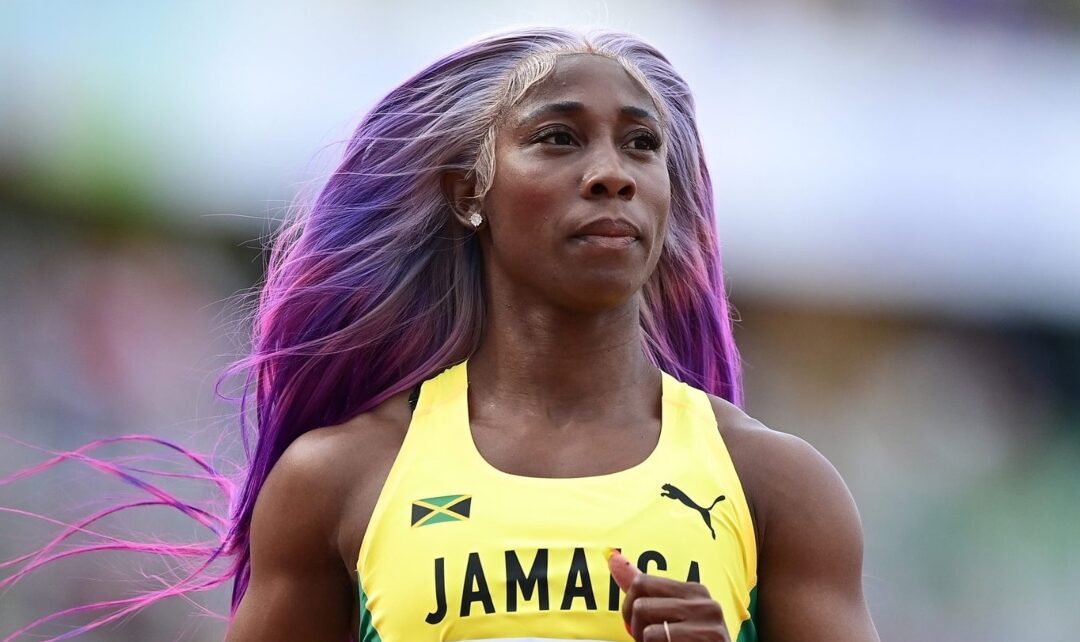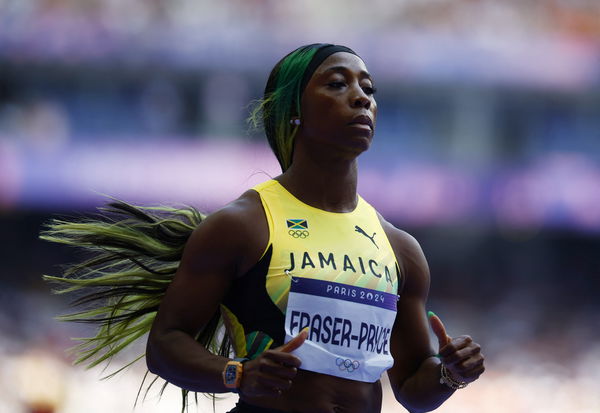
Imago

Imago
She thought the curtain had dropped. In Paris, under lights she had long commanded, Shelly-Ann Fraser-Pryce stood inches from the Olympic stage she once ruled. Her start was promising, even electric. A crisp 10.92 in the first round of the 100 meters, equaling the time that would eventually claim bronze. But momentum faltered, not from fatigue or form, but from confusion. Denied access to her warm-up zone by a change in stadium protocol, Fraser-Pryce found her rhythm compromised. She withdrew before the semi-finals began, walking away from what had been touted as her final Olympic race.
Watch What’s Trending Now!
At 38, she had trained for clarity, for one last clean shot at closure. The withdrawal wasn’t part of the plan, but neither was retiring with that unfinished feeling she felt in the final two reps on the warm-up track, as she described her body to be “shutting down,” while she suffered painful leg cramps. It was right here that it became clear to the athlete that she could no longer compete in the event. “I was probably having a panic attack,” she says. “I felt I could see it in front of me, and it was ripped [out of my hands].”
ADVERTISEMENT
After Paris, she returned quietly to New York, without the noise or ceremony that usually accompanies Olympic farewells. It was there, in stillness, that she sat with her disappointment. “We came to New York, and I took literally three months, just nothing but resting,” she said during a recent Q&A with Jemele Hill.
“The last time I took three months off, I was pregnant. But this was three months to kind of really just sit with myself to think about what’s next. What do I do for me, and make that decision solely for me—it can’t be about anybody else. And that was the moment I said, I’m going to Tokyo,” Fraser-Pryce further added. The choice was not born from denial, but from clarity. Fraser-Pryce did not spring toward Tokyo to chase medals.
ADVERTISEMENT
She pursued peace. The frustration in Paris had shown her how much the process, not just the podium, still mattered. She understood the risks of extending her career. With her age not on her side, Shelly-Ann Fraser-Pryce knew that she might get a serious injury. Moreover, preparing for Tokyo also meant that she would have to give up spending quality time with her son, Zyon. Still, she returned to the track in May, clocking an 11.05. Last month, she secured her spot for the World Championships. It is, in every way, an epilogue she is writing deliberately. There are no illusions about legacy or place in history.
ADVERTISEMENT
She has won everything that could be won. But she speaks now with the clarity of someone chasing something deeper than gold. Fraser-Pryce may never stand on another Olympic podium, and that is no longer the point. Her return to competition is not a continuation of the past, but a decision to claim authorship over its conclusion. In Tokyo, she will race with nothing to prove and everything to settle. For herself alone.
Shelly-Ann Fraser-Pryce books ninth Worlds spot with steely third-place finish
Shelly-Ann Fraser-Pryce’s place in track and field history has long been assured, but on Friday evening in Kingston, she added another chapter to her remarkable career. With a third-place finish in the women’s 100 metres final at the Jamaican national trials, the 38-year-old secured qualification for her ninth World Championships, scheduled for September in Tokyo. Her time of 10.91 seconds was sufficient to confirm her inclusion in the Jamaican contingent, extending an international journey that began nearly two decades ago.
ADVERTISEMENT

Reuters
Paris 2024 Olympics – Athletics – Women’s 100m Round 1 – Stade de France, Saint-Denis, France – August 02, 2024. Shelly-Ann Fraser-Pryce of Jamaica reacts after the heats. REUTERS/Sarah Meyssonnier
While Tina Clayton stole the evening with a career-best 10.81 to claim her first national title, and Shericka Jackson followed closely at 10.88, all eyes eventually returned to Fraser-Pryce. The veteran sprinter, a ten-time world champion, demonstrated once again the consistency that has defined her legacy. She did not speak immediately after the race, but her decision to line up at these trials, after limited competitive appearances this season, conveyed a determination that was characteristic rather than surprising.
ADVERTISEMENT
Fraser-Pryce first stood on a World Championships podium in 2007, when she anchored Jamaica’s 4x100m relay to a silver in Osaka. Since then, she has amassed five world titles in the 100m, a record unmatched by any woman in history. Now, as she prepares for what may be her final global appearance, she returns not as a nostalgic figure, but as a serious contender. Whether she pursues a full farewell tour or competes selectively, her qualification ensures that the Tokyo crowd will witness the continuation of one of the sport’s most disciplined and enduring careers.
ADVERTISEMENT
ADVERTISEMENT
ADVERTISEMENT